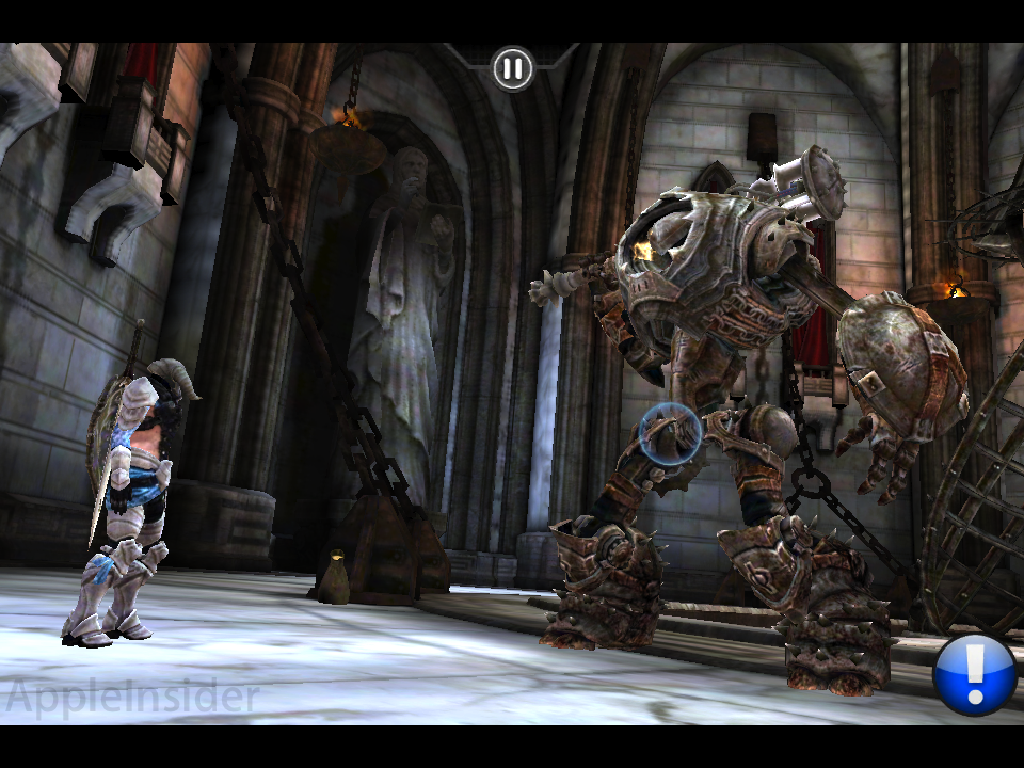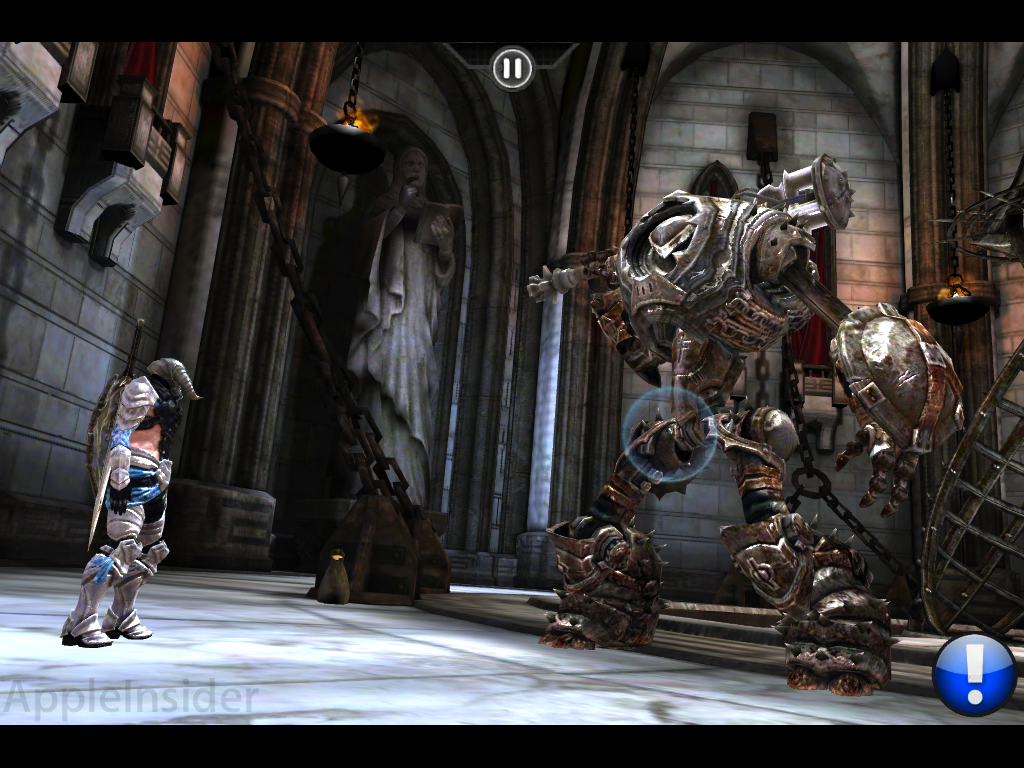Epic game developer calls iPad 2 graphics leap "astonishing," doubts Android can compete
Sweeney, a key developer of Epic's Unreal Engine used in a series of 3D games over the past decade from the first "Unreal" in 1998 through such popular titles as "BioShock" and "Batman: Arkham Asylum," noted in an interview with Gizmodo that mobile devices are improving much faster than consoles historically have.
The 9x iPad 2 graphics leap
Sweeney described conventional game consoles as seeing "a 10-20x leap in performance every 7-8 years," compared to the 9x leap Apple claimed for the iPad 2 in just one annual refresh. Asked whether iPad 2 can really deliver a 9x improvement in graphics performance, Sweeny said, "I certainly believe 9x," although his group hasn't benchmarked the device's core chips yet.
Last year's A4 CPU used in the iPhone 4 and iPad is roughly "comparable to a single Xbox 360 core" Sweeney estimated. The new A5 used in iPad 2 holds the potential for "far, far more potential in that platform than we're exploiting today," he added.
Sweeney said iPad 2 delivers enough shader performance that "you can use the high-detail shaders we did during Gears of War." The interview noted that "more complex shaders and post-processing effects are going to remain the visual differentiators between high-end mobile devices and consoles for the time being, though we could 'see more of that with more time with the iPad 2.'"
Limitations of mobile devices
The biggest limitation for game development on mobile devices is OpenGL ES graphic drivers Sweeney said, which currently have "fairly high overhead" and are "not nearly as optimized as we'd like."
Optimizations could provide "a factor of 4 driver overhead reduction," he estimated, noting that the current software allows mobile games to look great but restricts them from rendering "a whole lot of objects" on the screen at once.
The result are games like Epic's "Infinity Blade" for iPhone and iPad, which focuses on one-to-one combat. Epic delivered a special version of the title for the new iPad 2 to take advantage of its greater graphics capacity (contrasted with the original iPad graphics below).
Another limitation is available memory, Sweeney said, although he was described as being "totally happy" with the iPad 2's 512MB of RAM, noting that "it's as much as the Xbox 360." The biggest issue with RAM is having a known amount available to work with he said.
Android hardware fragmentation a problem for high end games
Uncertainty about the hardware available across a given platform is a particular problem for higher end gaming developers. Sweeney explained, "when a consumer gets the phone and they want to play a game that uses our technology, it's got to be a consistent experience, and we can't guarantee that [on Android]. That's what held us off of Android."
Contrasted against a gaming platform where hardware aspects don't vary between models and makers, an "open" platform like Android becomes a difficult beast to target. "If you took the underlying [Sony] NGP hardware and shipped Android on it, you'd find far far less performance on Android," Sweeney said.
"Let's say you took an NGP phone and made four versions of it. Each one would give you a different amount of memory and performance based on the crap [the carriers] put on their phone," he added, alluding to the additional layers of software fragmentation that affect Android devices.
Apple's chief executive Steve Jobs described Android's software fragmentation as a growing problem for developers last fall, and a recent survey indicates that 87 percent of Android developers see fragmentation as being a problem for the platform.
For Epic to do the kinds of things they do on iOS, Sweeney said that "Google needs to be a little more evil. They need to be far more controlling." At the same time, he also said the main reason Epic has focused on Apple's iOS was because "it's really the best place to make money."
That observation underlines the the reality that despite shipping on lots of phone handsets (much as JavaME or Flash Lite did before it), Android isn't creating a viable development platform that is resulting in either web apps or native development that can rival Apple's iOS platform in smartphones, let alone other devices such as media players like iPod touch or tablets like iPad.
A report from February indicated that Apple continues to own 82.7 percent of all mobile software sales with its iOS App Store.
 Daniel Eran Dilger
Daniel Eran Dilger













 Malcolm Owen
Malcolm Owen
 William Gallagher and Mike Wuerthele
William Gallagher and Mike Wuerthele
 Christine McKee
Christine McKee
 William Gallagher
William Gallagher

 Marko Zivkovic
Marko Zivkovic









